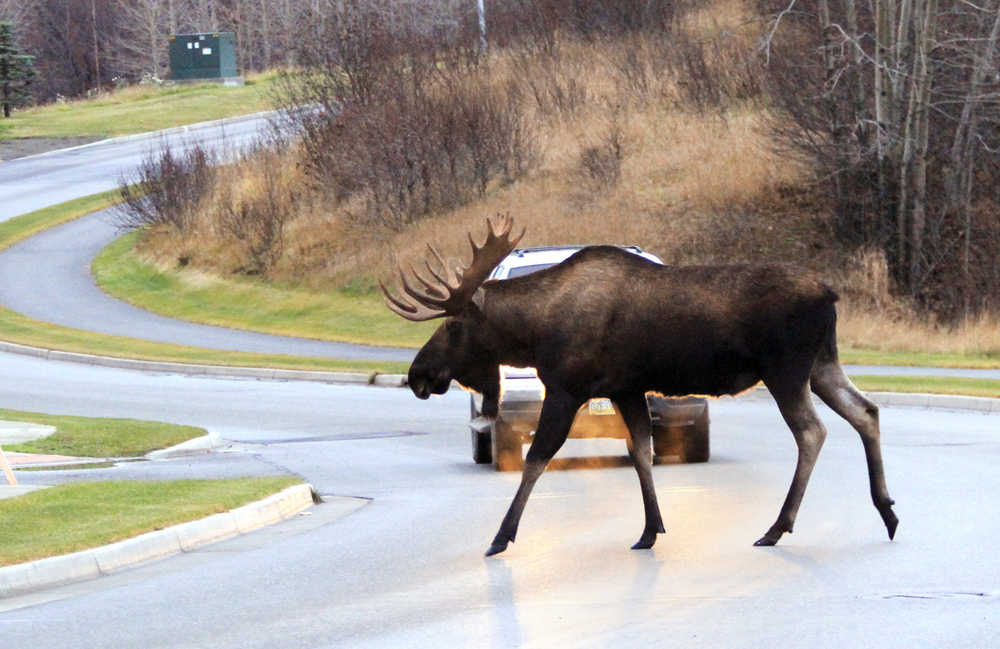ANCHORAGE — Thieves coming across dead moose on Alaska roads are stealing the carcasses, making away with hundreds of pounds of meat that normally goes to a program run by state troopers that gives it to the needy and others willing to butcher the carcasses, officials said Wednesday.
Two moose killed recently by cars or trucks were set to be picked up by the trooper-sponsored program that alerts the Alaska Moose Federation so carcasses can be quickly delivered to recipients on a state troopers’ list of people who want them.
But federation drivers could not find the two dead moose in July and August when they went to roadkill sites between Anchorage and Denali National Park, said the federation’s director, Don Dyer.
Moose are the property of the state in Alaska when killed on the road and the thefts hurt Alaskans who like moose meat and depend on wild game to supplement their diets, he said.
“Sometimes there will be 10 people waiting for this moose to be delivered,” Dyer said. “Then we have to call them up and say, ‘Sorry, this moose has been stolen.’”
Roadkill moose provide plenty of food because adult bulls weigh up to 1,650 pounds, yielding more than 560 pounds of meat each.
Alaska’s cold weather allows residents to take advantage of roadkill meat as food because carcasses stay fresh long enough for federation drivers to retrieve them in time for them to be butchered rapidly.
“In Arizona, something like this might not work because of the spoilage factor,” Dyer said. “Here, where the climate is cooler, we’re able to salvage the meat quickly enough so that it’s not spoiled.”
Any Alaskan can sign up for the moose salvage program. Recipients are not allowed to sell the meat, said wildlife trooper Capt. Rex Leath.
Before the moose retrieval program started in 2012, Alaskans on the troopers’ list were notified about moose roadkill locations and told they could go get the meat. Dyer said the retrieval program saves time for troopers and police.
“At 3 o’clock in the morning at 30 below in February, you might have a group of grandmothers out there cutting up a moose on the side of the road in a snow storm with kitchen knives, and the officer would have to sit there for an hour or two hours while they’re cutting up this moose, protecting them from traffic,” Dyer said.
The federation with funding from a federal grant receives $200 for each moose picked up, using big pickups outfitted with winches and ramp systems to lift the carcasses from the roads.
Dyer suspects the moose thieves dragged the carcasses onto snowmobile trailers to tow them away. Last weekend, federation drivers arrived at another roadkill site and found that part of a moose’s shoulder had been sliced off.
Two moose were also missing last winter when federation drivers went to pick them up.
Most moose die on Alaska roads from October through March when they meander onto roads to avoid struggling through deep snow.
The federation picked up about 500 moose over the last year and retrieves as many as 800 during years with heavy winter snows.
Besides depriving the needy of moose meat, the roadkill thieves waste the time of troopers and the federation, Dyer said.
“The impact these thefts have is not minimal,” he said.

